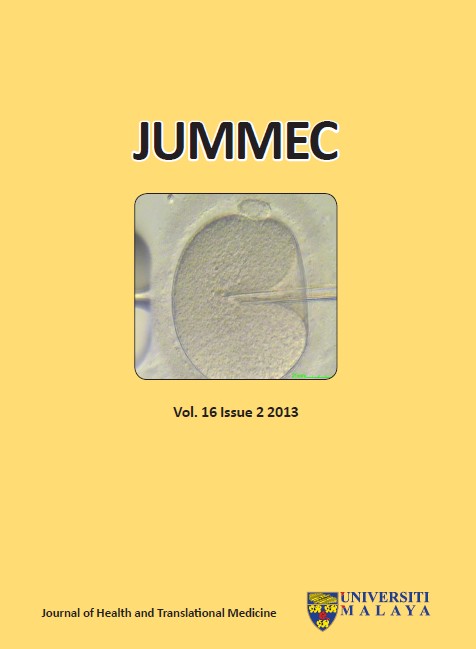IATROGENIC (‘CLINICIAN-INDUCED’) DAMAGE INCURRED BY HUMAN SPERM DURING INFERTILITY TREATMENT: POSTGRADUATE RESEARCH AND COLLABORATIVE DEVELOPMENTS BETWEEN THE UNIVERSITIES OF MALAYA AND OXFORD
Abstract
Assisted Reproductive Technology (ART) is a suite of laboratory techniques designed to rescue infertile phenotypes. While ART has led to the birth of 5 million ART babies worldwide, success rates rarely exceed 40%. One potential factor for this could be iatrogenic ('clinician-induced') damage to critical sperm proteins, such as phospholipase C zeta (PLCζ) and protamine, which are fundamental for oocyte activation and sperm DNA integrity, respectively. This report describes how we have begun to investigate the adverse effects of ART techniques upon these key sperm proteins. We also describe the pathway taken by Miss Suseela Yelumalai to acquire a scholarship from the Malaysian Government and her postgraduate experience at the University of Oxford. We introduce the facilities and learning opportunities available at the Institute of Reproductive Sciences (IRS) which houses Dr Kevin Coward's research laboratory, and finally, highlight the potential for collaborative development between the Universities of Oxford and Malaya.
Downloads
Downloads
Published
Issue
Section
License
All authors agree that the article, if editorially accepted for publication, shall be licensed under the Creative Commons Attribution License 4.0 to allow others to freely access, copy and use research provided the author is correctly attributed, unless otherwise stated. All articles are available online without charge or other barriers to access. However, anyone wishing to reproduce large quantities of an article (250+) should inform the publisher. Any opinion expressed in the articles are those of the authors and do not reflect that of the University of Malaya, 50603 Kuala Lumpur, Malaysia.


